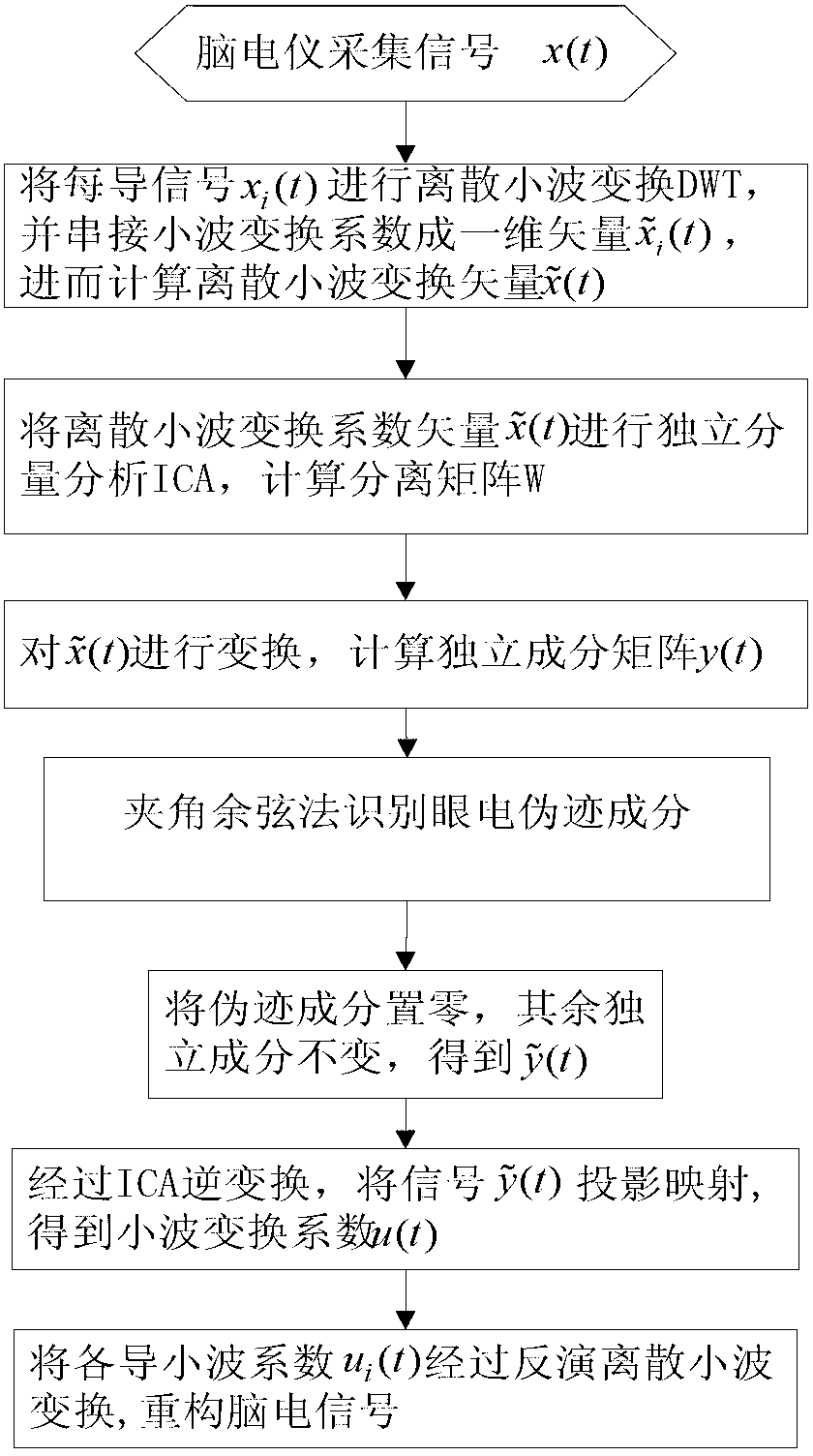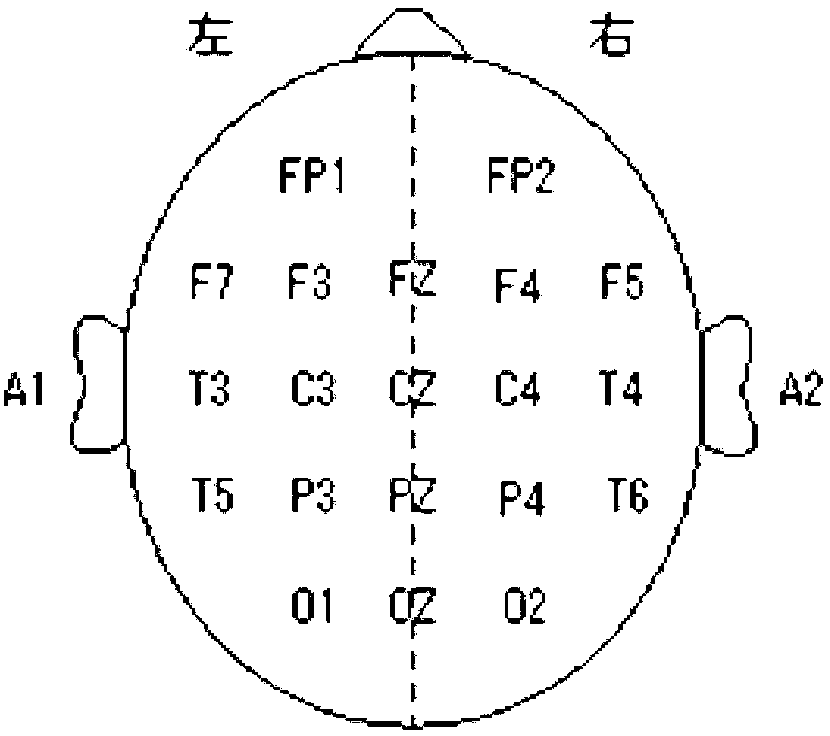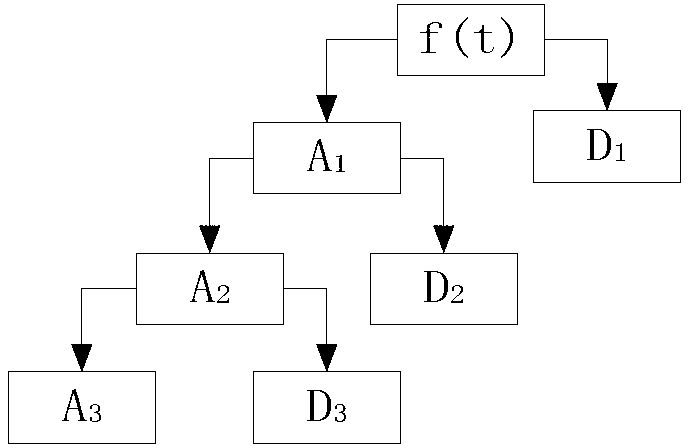Method for rapidly and automatically identifying and removing ocular artifacts in electroencephalogram signal
An electroencephalogram signal and oculoelectric artifact technology, which is applied in the fields of electrical digital data processing, medical science, special data processing applications, etc., can solve problems such as the inability to automatically identify oculoelectric artifacts
- Summary
- Abstract
- Description
- Claims
- Application Information
AI Technical Summary
Problems solved by technology
Method used
Image
Examples
Embodiment Construction
[0080] The specific implementation of the present invention will be further described below in conjunction with the accompanying drawings. This embodiment is carried out under the simulation environment of matlab.
[0081] 1. see figure 2 According to the international standard lead 10-20 system, electrodes were placed at C3 and C4, and 2-lead EEG signals were collected x 1 (t) and x 2 (t), in addition, a guide eye electrical signal x was collected synchronously at F7 3 (t), a total of 3 guide signals were collected x(t)=[x 1 (t),x 2 (t),x 3 (t)] T , the reference electrodes are placed at A1 and A2. The sampling frequency of the signal is 250Hz, and the analog filtering range is 0.1~100Hz. Each EEG recording time is 10s, and the number of sampling points is 2500.
[0082] see Figure 4 , which is the waveform of EEG signals collected from 2 leads and 1-lead EEG signal. It can be seen that the EEG signals have different influences on each lead EEG, forming electro-oc...
PUM
 Login to View More
Login to View More Abstract
Description
Claims
Application Information
 Login to View More
Login to View More - R&D
- Intellectual Property
- Life Sciences
- Materials
- Tech Scout
- Unparalleled Data Quality
- Higher Quality Content
- 60% Fewer Hallucinations
Browse by: Latest US Patents, China's latest patents, Technical Efficacy Thesaurus, Application Domain, Technology Topic, Popular Technical Reports.
© 2025 PatSnap. All rights reserved.Legal|Privacy policy|Modern Slavery Act Transparency Statement|Sitemap|About US| Contact US: help@patsnap.com



